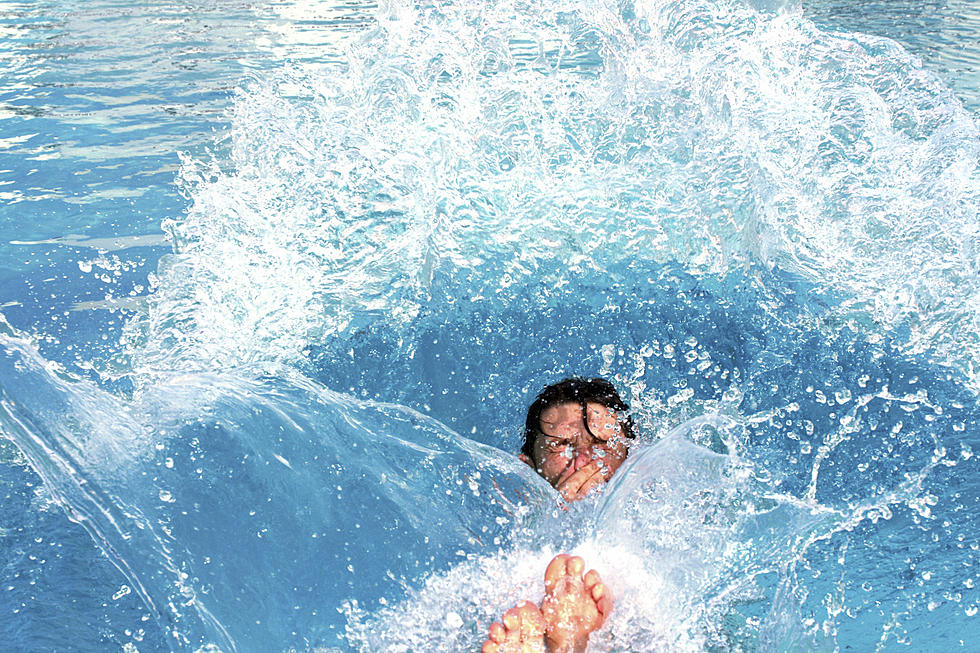VIDEO: Uncovering the truth about sharks
Are you afraid of sharks every-time you go into the water? Sharks aren't really interested in you, but what sparks an attack and how long does it really last? The truth may surprise you.
Kerry Anderson, interpreter at Jenkinson's Aquarium, says it's something to do with the sharks vision that could lead to an attack.
"Sharks don't have fingertips and if they can't see at a certain time...if you can't see with goggles on, the shark can't see in the ocean so they're going to try and figure out what something is, and unfortunately for us they're going to use their mouth to figure out what it out" Anderson said.
When there is an attack, sharks typically don't stick around to finish what they started.
"When there is some sort of incident or run-in with a shark, the shark typically takes one bite and swims away, it doesn't come back like they show you in the movies," Anderson said. "But just like any other animal, it can go rogue and we do see that with sharks sometimes unfortunately."
One common belief is that sharks are attracted to people but that's not exactly true.
Anderson says sharks may just be reacting to a noise they hear in the water.
"Sharks have the same senses we have and they're much better at sensing things in the water than us for obvious reasons, but the senses that they have that we don't help them detect if life is around," Anderson said. "They have pressure sensors on the side of their body that they can feel if there's any change in the water pressure around them, so if someone's splashing around, they think it's an injured animal and they're going to go check out what that is."
She says they also have an electrical sense which is displayed through pores near their head which can help them determine if something is about to expire.
"Sharks, when it really comes down to it, they're super lazy, we call them opportunistic predators and they're only going to go after the fish that are sick, injured or dying," Anderson said.
There are also several different kinds of sharks.
Many people fear sharks when they go into the water for a number of different reasons but did you know they actually do a lot of good in the ocean?
Anderson says sharks are a keystone species like the honeybee, so in this case, sharks are very much needed in the water.
"They're a keystone species in the water where if they're not there, populations will grow uncontrollably and illness will spread because sharks only go after the sick, injured or dying fish," Anderson said.
If sharks don't eat fish in those states, Anderson says the smaller items on the food chain will disappear and the entire Eco-System will be interrupted.
"They don't directly protect each other, because they're solitary animals most of the time," Anderson said. "They have two modes...they're either just swimming around for a few weeks at a time or they turn on the hunter mode."
We've seen it in the movies of sharks being able to sniff out blood and want to swim toward it, but do they really have that keen sense of smell?.
Anderson explains that it depends on the type shark is but, yes.
"The ones that hunt at night or live in darker waters, more murky waters...they're going to depend more on their sense of smell," Anderson said. "They probably could smell a drop of blood in a swimming pool's worth of water and that is a signal to them that something is injured nearby so that should be what's on their menu for the day."
She says it also depends on where they are in the ocean.
Some sharks have a better sense of smell than others.
Believe it or not, your suspicion about sharks being in the water near you...isn't far off.
"They're found in just about every inch of the ocean," Anderson said. "Most of the species that we have here at the aquarium are coastal species, or sand sharks. If you've been in the water here in New Jersey, you've been in the water with these sharks and there's a chance that they've been within a couple yards of you while you're swimming and you haven't even realized that animal is there."
More From 105.7 The Hawk









